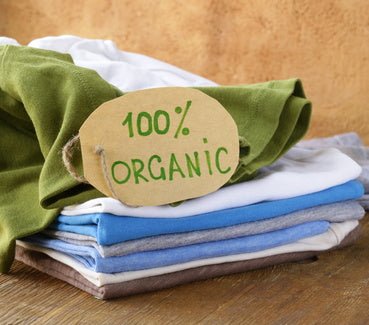
The Intention Behind Organic Yoga Clothing for Women
I love teaching yoga. It is without a doubt one of the most gratifying experiences in my life. The fact that I serve as support on someone’s physical, mental and emotional journey is indeed an honor for me. Not only because I am facilitating a service, but because of the reciprocity of energy with my students. This exchange is very healthy in any type of relationship, not only with each other as human beings, but with the Universe. In my classes I always tell my students to set an intention for their practice. Whatever that intention is, I encourange them to hold on to it in heart and mind. But what is really an intention?
Intention is defined as having a purpose or plan in mind; to direct the mind; to aim. An intention is a statement you make to yourself or others to obtain a specific outcome. In life, everything begins with an intention. Your goals, dreams, desires and vision are all driven by your intention to achieve them. In my experience, yogis have great intentions. We take care of our body, mind and spirit to the best of our abilities. The yogi community embraces principles of love, acceptance, non-judgment, kindness and compassion, which are meant to be carried both on and off the mat. They don’t call us tree huggers for nothing! Yogis are easily one of the most supportive environmental groups, highly involved in organic farming and overall sustainability.

According to yoga statistics, as of July, 2013 there were an estimated 15 million yoga practitioners in the US alone. Every year the yogi community grows by 20% and of those 15 million, 72% are woman. Considering we live in a capitalist society, it comes as no surprise that the yearly revenue in sales of yoga related products is an astonishing $27 billion. It is also no surprise that the majority of revenue comes from yoga clothing for women. One would believe that clothing companies banking on the growth of our community would develop products that would appeal, not only to our female sensitivity (aka, vanity), but also to our core values. Unfortunately, that is not the case. It just makes you wonder, why are there so few brands of organic yoga clothing for women when there is a clear demand for it? Further more, what is truly the intention behind these yoga clothing companies? Despite any positive inclination or thought, we all know the answer to that question.
Companies want to make money. They all want a piece of that $27 bill, and whether we like it or not, there is nothing inherently negative about wanting to make some money. As much as I believe that money is not the most important thing in life, we need it, we use it and it sure makes life a whole lot easier in many respects. However, there should be some sort of moral and social responsibility attached to it when yoga clothing companies continue to use the yogi lifestyle as a marketing tool without respecting or following our principles.
First, let me state my own mea culpa in the matter, as I am as guiltyas anybody else of not wearing organic yoga clothing. I strongly believe that lack of quality and availability, paired with exorbitant prices are largely to blame for that, and not a lack of love or empathy for Mother Earth. Trust me, I get it... I am a woman first and foremost. A latino woman, to top it off. Like any other woman I know, I am an emotional shopper. I want to buy clothes that will make me look and feel good even when I'm sweating my butt off at the yoga studio. As a yoga instructor, I am fully aware of the one thing all yogis like to avoid: see through yoga pants. No one buys a pair of yoga pants that will rip, stretch and fall apart after a few uses. We want our clothes to cover us properly in the essential areas and to last us more than just a few washes. However, as responsible members of a capitalist society, we must learn to be conscious consumers and embrace our yogi philosophy not only in the studio, but out in the real world.
So, what is a girl to do? Pay a visit to your local Goodwill or Salvation Army. You may not find organic yoga clothing for women, but you will use an item that has already been manufactured, instead of contributing to the manufacturing of more eco unfriendly garbs. In addition, you'll save some money by buying previously owned. If you’re not fond of used clothes, then look for brands that use sustainable practices with guaranteed quality. PuraKai Clothing uses organic cottongrown without the use of toxic pesticides or fertilizers. According to the Organic Trade Association, the methods used to grow organic cotton include insect releases, strip cutting of alfalfa and new weeding machinery to help reduce the environmental impact of cotton crops. In order to ensure that only approved methods are used in the farming of organic cotton, a third-party organization certifies that there are no toxic sprays or chemicals on the crops.
Conventional cotton requires huge amounts of pesticides, which carry a serious environmental imprint, as well as health risks for the farmers who grow these crops. About 25% of the world’s insecticide use and more than 10 % of the world’s pesticide goes to cotton crops. GMO varieties claim to use fewer pesticides because they inject a gene into the crops’ seed to kill insects. However, new research shows that GMO’s are using large amounts of herbicides, as well as new and modified herbicides because weeds have developed resistance to them. The fact is that growing organic cotton is more expensive than growing conventional or GMO cotton and it sheds some light upon the lack of organic yoga clothing for women. Sadly, it also reveals the intentions and priorities of many yoga clothing brands.
PuraKai is also committed to its own environmental causes. The Billion Baby Turtle Project is dedicated to the re-population of endangered sea turtles such as the leatherback, green and hawksbill. Another cause dear and near the PuraKai family is The San Diego Coastkeeper. These program aids in the protection and restoration of swimming & fishing waters, as well as drinkable water sources in San Diego County, California. Last, but certainly not least is the Algalita Marine Research Institute, a Long Beach, California-based non-profit marine research and education organization dedicated to the protection and improvement of the marine environment and its watersheds through education and research on the impact of plastic pollution. PuraKai also donates Marine Debris Investigation Kits to local schools.
As a fellow yogi I invite you to make an investment in the environment. Next time you go shopping for your yoga gear, look for organic clothing. Just as the organic food movement has gained notoriety, start thinking about organic yoga brands that support your principles of love, kindness and compassion towards the planet. Carry with you that intention. We should strive to maintain the balance that is found everywhere in nature, one step at a time.
"He who experiences the unity of life sees his own self in all beings, and all beings in is own self" - The Budda






Leave a comment
This site is protected by hCaptcha and the hCaptcha Privacy Policy and Terms of Service apply.